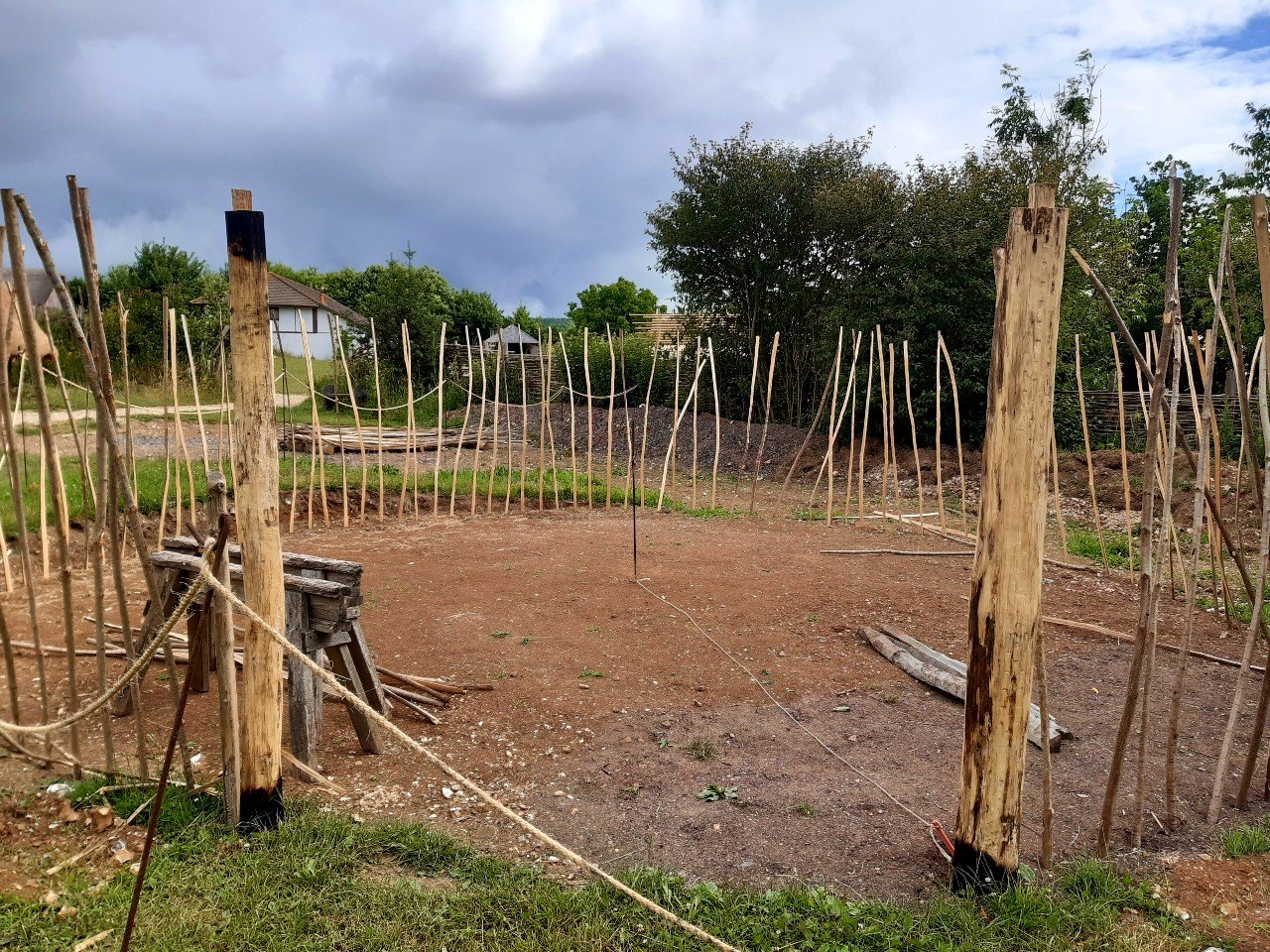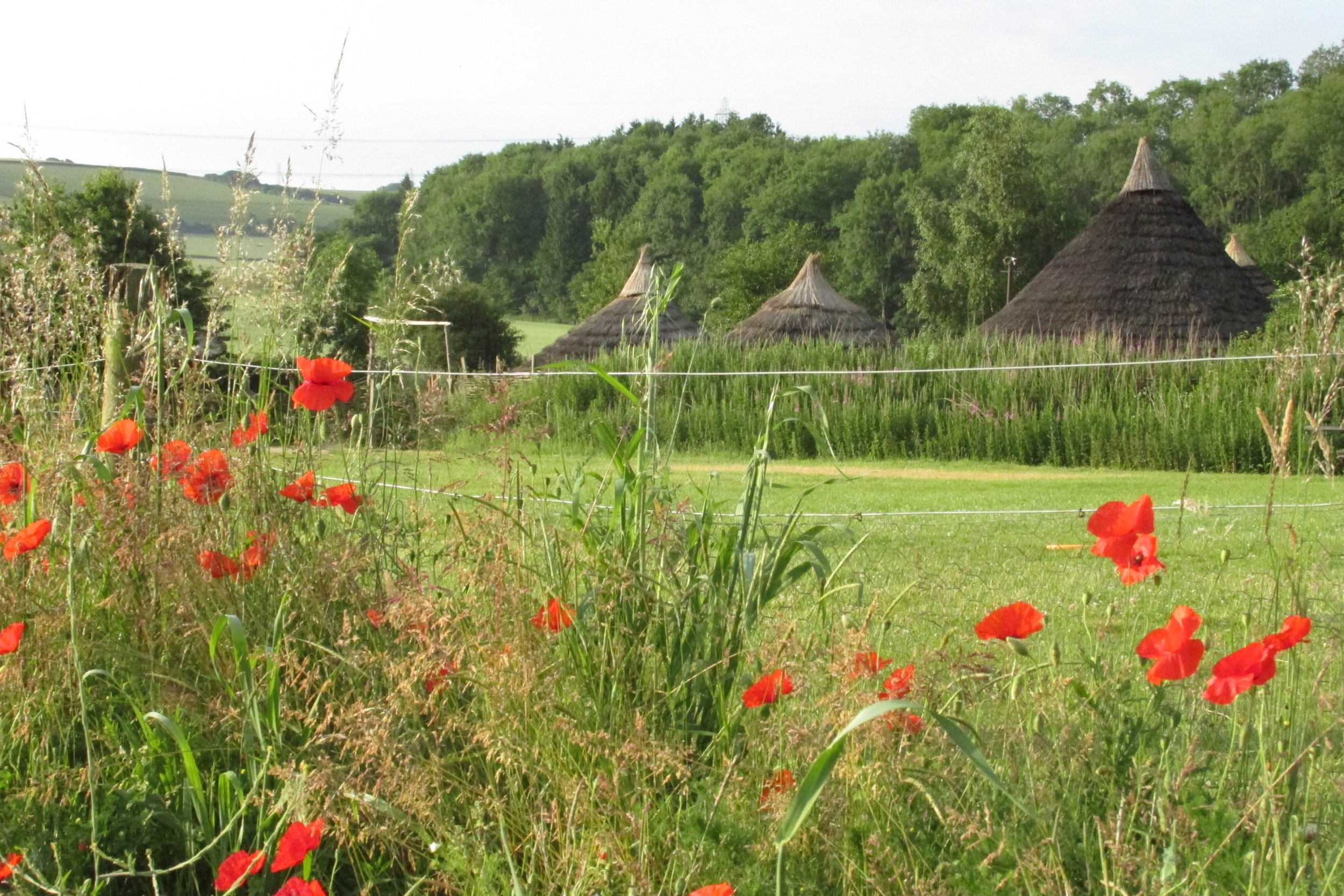Our mission & values
Butser Ancient Farm is a not-for-profit research organisation working in education, conservation, and community. We are independent from the government and rely on our visitors and supporters for funding. As a not-for-profit, 100% of our revenue goes directly back into our work at the farm.
Curiosity & learning
At our core, Butser Ancient Farm is a site and a team dedicated to learning as we continue to expand our knowledge of the past and share it with others.
We are a research institution, and we aim to explore questions about early history through our archaeological experiments. In our 50-year history, we have been on the cutting-edge of experimental archaeology, expanding our knowledge of the ancient past and providing context for and insight on archaeological remains through practical discoveries.
Just as important as our research is our mission to share our findings! We publish our findings to archaeological journals, as well as making our work accessible to all through educational trips, open days for the general public, and documentaries following our projects on site. We really believe in experiential and enquiry-based learning, and the impact of seeing ancient technologies brought to life — and getting hands on with them too! We hope to encourage curiosity in our visitors and viewers, the instinct to try things out and have a go for oneself, and to show through recreations of everyday life that ancient people weren’t so different from ourselves.
Green Butser
Butser is nestled in the gorgeous landscape of the South Downs National Park, and we strive to have the least impact possible upon that land.
Our visitor centre was built with our eco-friendly goals front and centre. It is made almost entirely of wood, including recycled timber, and insulated with sheep’s wool. In winter, it is heated by a biomass boiler burning locally-sourced wood logs; in summer, we use solar energy. Windows, ventilation, and sun roofs let in as much natural light as possible to reduce the need for electric lighting, and much of our power is generated by the solar panels on the roof. Our sewage system uses collected rainwater to flush toilets and passes treated waste water on to a reed bed for natural cleaning. In constructing the visitor centre, 90% of the waste material generated was recycled into the build.
We are also running several conservational projects. We keep rare Manx Loaghtan sheep and endangered English goats, farm ancient crops, maintain a wild growing area for natural plant growth, and work with the Species Recovery Trust to conserve rare plants.
Serving our community
Butser Ancient Farm is a not-for-profit, Community Interest Company, and serve our local and global communities in everything we do.
We firmly believe that history belongs to everyone and aim to make it as accessible as possible. We are a team of diverse genders and ages that values inclusivity and equality, and we work to make Butser friendly and welcoming to all. The entire site is wheelchair-accessible (excepting a tiny area in the villa), and we frequently work with veterans and vulnerable adults on projects to improve mental and physical health. We also strive to support the next generation by running work experience and free teaching days for young people.
We also aim to support our local community by working with local craftsfolk, brewers, and suppliers. Much of our stock for our shop, bar, and food offerings is sourced locally, and many of our events spotlight the skill of local craftsfolk with demonstrations and stalls.
The Butser constitution
Our mission
To promote and encourage the study of archaeology
To facilitate archaeological experimentation and enable the results to be available to the wider public.
To promote the understanding of life in this country in the distant past
To further the education of pupils and students of all ages.
To promote life long learning particularly within the local community
Our aims
To be a centre of excellence within the field of experimental archaeology
To provide a hands-on learning experience to all visitors
To be an inclusive site, accessible to all
To provide high quality, well planned programmes of study for visiting educational groups.
To provide a meaningful experience of work for a wide range of individuals, in particular young people and those with special educational needs.










